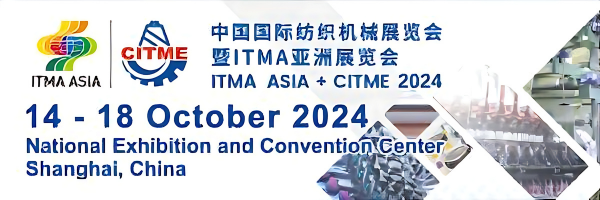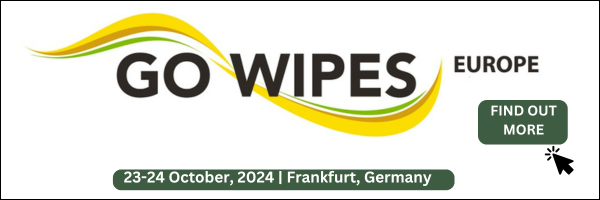Revenue of the Lenzing Group increased by 1.2 per cent to €1.09 billion in the first half of 2019. The EBITDA margin declined from 18.1 per cent in the first half of 2018 to 16.6 per cent in the reporting period. Net profit for the period decreased by 15.9 per cent from €91.3 million to €76.8 million. Earnings per share amounted to €2.97 (H1 2018: €3.44).
The share of specialty fibres in revenue, at 48.4 per cent, significantly exceeded the prior-year value of 44.1 per cent. EBITDA dropped by 7 per cent to €181.2 million. This decline primarily resulted from higher production volumes and currency effects which led to an increase in pulp costs, from an increase in personnel expenses and the market environment for standard viscose, according to a press release by Lenzing.
“Fully in line with our sCore TEN strategy, our specialty fibre business is developing very positively, which has made us significantly more resilient today than a few years back. The investment in new production capacities for lyocell fibres and the focus on our Tencel and Veocel product brands will make us even more resistant to market fluctuations and strengthen our position as a leading supplier of specialty fibres. The first phase of this ambitious growth plan is the construction of a state-of-the-art lyocell plant in Thailand,” said Stefan Doboczky, chief executive officer of the Lenzing Group. “The escalating trade conflict between the largest economies confirm our decision to temporarily mothball the Mobile, Alabama project. Lenzing will continue to monitor these developments closely and review this decision on a regular basis.”
Capital expenditures of the company dropped by 18.9 per cent to €95.1 million in the first half of 2019. The decline was temporary, primarily attributable to the completion of the expansion project in Heiligenkreuz (Austria) in 2018. Going forward, the planning for major projects in Brazil and Thailand will have a significant effect on the investment volume in the coming quarters.
The Lenzing Group is substantially increasing its production of lyocell fibers to meet the strong demand for these products. Lenzing will put the focus on stable and profitable growth as well as an improvement of the ecological footprint of the textile and nonwovens industries by expanding the production of specialty fibers. The first expansion phase of this ambitious growth plan, the construction of a state-of-the-art production plant for lyocell fibers in Prachinburi (Thailand), was approved in the second quarter of 2019. The investment volume for the new plant, which has a capacity of 100,000 tons, totals approximately €400 million. The conversion of production capacities from standard viscose to Lenzing Covero fibres in China was also completed during the reporting period.
An increased backward integration into dissolving wood pulp is another important step in the implementation of the sCore TEN strategy. Lenzing and its Brazilian partner Duratex continue to advance the planned construction of a dissolving wood pulp plant in the state of Minas Gerais (Brazil). The basic engineering, site preparation and the applications for the required permits are proceeding according to plan. The final investment decision is expected for the end of 2019.
The expansion and modernisation of the production capacities for dissolving wood pulp at the Lenzing site was successfully completed in the first half of 2019.
Lenzing will use blockchain technology to support its Tencel branded fibre business, ensuring complete transparency and traceability for brands and consumers of its fibres in the finished garment. In the second quarter of 2019 Lenzing announced a cooperation with the Hong Kong based technology company TextileGenesis to accomplish this ambition. Lenzing will carry out several pilot tests involving partners along the entire value chain and expects the platform to be operational as of 2020.
The Lenzing Group aims to strengthen its position as a sustainability front runner in the fibre industry by investing over €100 million in energy-saving measures, in the continued conversion to renewable energies and in new technologies. In the planning of new pulp and lyocell facilities such as the plant in Thailand, Lenzing will also put a strong focus on low-carbon energy sources and production processes. The goal of its climate strategy is to reduce net emissions of greenhouse gases to zero by 2050. An important milestone on the way to becoming climate-neutral is set for the year 2030. By then, Lenzing is commited to reduce emissions per ton of fibres and pulp by 50 per cent compared with 2017.
The International Monetary Fund expects a slowdown of global economic growth to 3.2 per cent in 2019, mainly driven by increasing protectionist tendencies and growing geopolitical tensions. The currency environment in the regions relevant to Lenzing will remain volatile.
Global fibre demand remains strong. According to preliminary calculations, cotton inventory levels should increase in the 2019/20 season. Towards the end of the second quarter 2019, the polyester market recovered from slower growth in the preceding months. The price levels for cotton and polyester are expected to decline slightly. Despite continued strong demand, capacity expansions for standard viscose caused higher pressure on prices, which fell to a historic low in the first half of 2019. The Lenzing Group expects the positive development of its specialty fiber business to continue.
Driven by the challenging situation in standard viscose, prices for dissolving wood pulp show a downward trend. Caustic soda prices in Asia have already declined significantly over the past months; this development has now become noticeable also in Europe. In a challenging market environment for standard viscose with prices at historic lows, the Lenzing Group will continue to expect its results for 2019 to reach a similar level as in 2018 based on the current exchange rates.

















